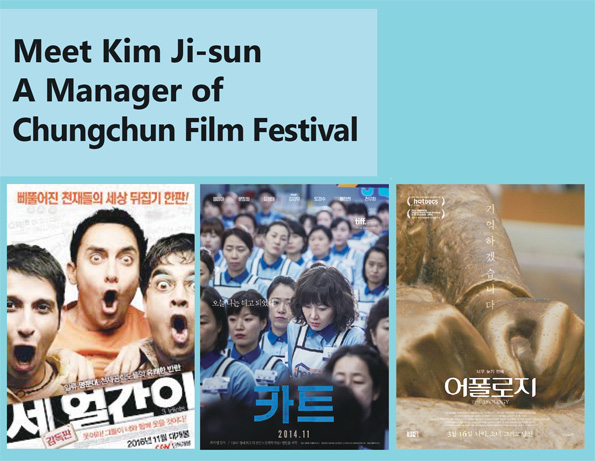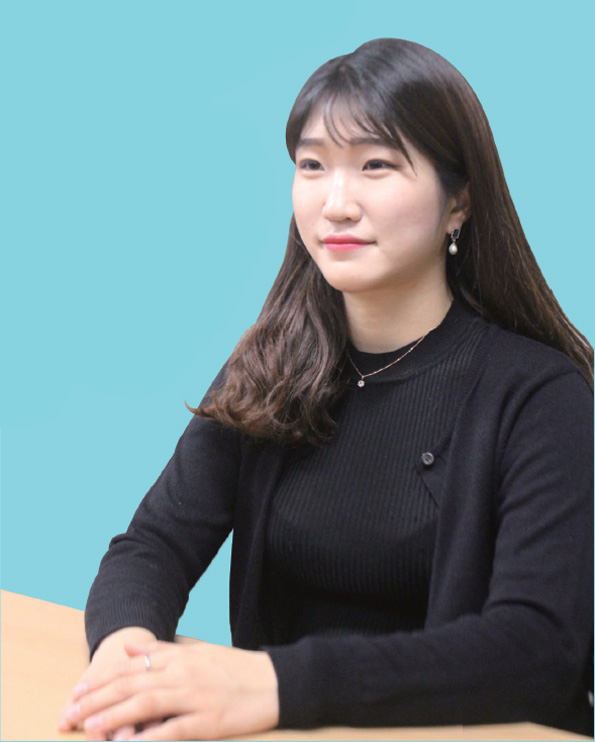
Q: What made you start the festival?
I am a member of an organization called ‘Butterflies of Hope’, and we’re working to solve the problems that stemmed from the sex slavery in the 1910s. I hold various events every year with the movie club Hwa-dam. Although the project of ‘Butterflies of Hope’ was held in the suburbs until last year, many students in CBNU began to show interest in this event. This was my first film festival. The reason I wanted to discuss social topics through movies was that movies are more accessible than others media. Also, people can understand difficult topics relatively easily. The festival lasted for three days, and the themes were ‘What is a college for us?’, ‘To live as a human: labor and human rights,’ and ‘History that never ends for us.’
Q: The first day: the movie 3 Idiots
The reason I selected the first theme was I felt many worries while attending college. When students go to college, each person will have their own goals. However, when I went to college, I was busy competing with other students and was tied up preparing for employment after graduation. Also, many other students were faced with a variety of problems, including tuition and living expenses. No one gave them a solution or advice. In this society, I thought it would be nice for students to meet and talk to each other and ask for advice. Also, I wanted to give them a chance to think about what college is.
Q: How did the movie depict university life?
The movie shows college students in India living in competition. I think universities are losing their identities. I don’t believe that college is serving the right purpose in society. It’s not just about academic development; it’s also about allowing students to live humanely. The main characters in the film are admitted into one of the best universities in India but are forced to compete without doing what they want to do. Seeing that, I think Korea is no different. It is wrong for college students not to do what they want to do and not to be able to live up to their own expectations.
Q: What do you think is an ideal university?
University is seen as a stepping stone to getting a job. Now, my friends and I are majoring in History, and some students are satisfied with that. However, I finally realized that, over time, we focused on theoretical studying and couldn’t do what we wanted to do. I think universities should teach not only theoretical skills but also the wisdom to live. I want universities to educate students on how to live life in this society.
Q: Tell me about the labor and human rights issues you dealt with on the second day.
The theme of this day was to live as a human being. We had time to think about how we could live happily in society, with the subject being about labor rights and human rights. The film was about workers’ rights in the midst of unemployment and about being temporary workers at a supermarket. When I first saw this movie, I realized that there were people whose livelihoods were in jeopardy. It’s so sad that the word ‘labor’ is recognized as a negative word in our society today. Of course, with employment, working for a living is the right thing to do, but society is now complaining that the system is not working.
Q: What does it mean to live as a human being?
It is nothing special. It is the ability to live without worrying. It’s about having dinner together and having a happy weekend with family, but society doesn’t seem to be working properly. Therefore, if we don’t get the right treatment or if we don’t get the proper human rights, we can’t live a happy life. The characters in the movie are never fictional. The situations are based on what’s happening in our society. I chose this movie with the desire for students to recognize the rights of workers who still don’t have the right to live humanely.
Q: You said that the crime of sex slavery is an uncompleted history. What does uncompleted history mean in the movie Apology?
The movie is a documentary showing Japanese military sexual slavery and is based on the testimony of those who had undergone those crimes. Through this, I wanted to inform students and to help them not forget the correct historical facts.
Q: How do we complete this uncompleted history?
I met a woman who had been through the sexual slavery. She said, ‘I will still fight those crimes, not because of money, but because I hope that there will be no more victims like me in the future.’ It takes effort nationally to get over this. Also, I think we should help our younger generation maintain interest in this topic. I also believe that Japan should be sorry for this. As well as sexual slavery issues, there were forced laborers too. I think they deserve an apology.
Q: It is not easy to be critical of such social problems. There seems to have been some negative voices.
Of course there were. I’m a student living in a reality where social systems aren’t working well, and I want to get out of that system. As a student in a competitive system, my parents opposed me severely. However, my parents, who should try to understand my will and my efforts, are now starting to support me. At first, I was hated in my department too. However, now everyone is cooperating with me. It may be hard to start, but when you do the right thing, you will find that one day people will understand more, care more and support more. Everyone seems to have changed their attitude because they think that I’m doing the right thing. Moreover, they think it’s something that needs to be discussed more openly.
Q: What did you realize as a speaker, not as an audience member, through these activities?
I didn’t think the students were ignorant at all, and I thanked them for attending the event. I got messages from the audience during the festival, and each one was precious to me. I felt like most of the audience had learned facts and thanked me for helping them see the truth. I thought they were just unaware because there were no voices to guide them. I think the audience was like a candle that hadn’t been lit, and I was playing the role of lighting. I wanted many students to participate in the festival, and they realized it wasn’t just a film festival and that they could all be active if they chose to.
Q: What will you do in the future?
Next time, I hope it will be large enough for many more students to participate. I hope there will be many more students who will share their thoughts on some social issues. I haven’t decided on the next topic as I’m trying to think of an appropriate topic. Also, I would like to plan a trip next time around Gwangju to see how democracy has come to shape our society.
By Nam Min-woo
mw38@cbnu.ac.kr


 All
All People
People






 Nam Min-woo
Nam Min-woo











